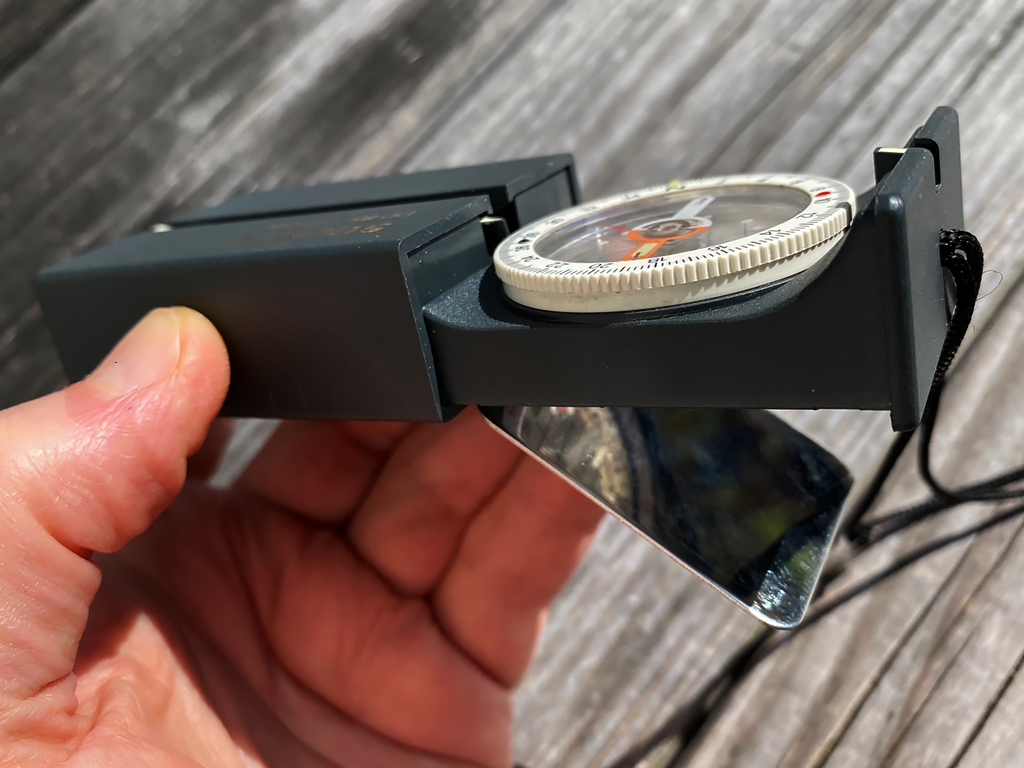You are using an out of date browser. It may not display this or other websites correctly.
You should upgrade or use an alternative browser.
You should upgrade or use an alternative browser.
New compass - sort of
- Thread starter vavavroom
- Start date
Suunto and Silva compasses will have others thinking you know what you are doing. I still have a functioning Silva Ranger purchased 46 years ago.
Thanks for sharing vavavroom
Thanks for sharing vavavroom
Very nice. I always wanted a nice compass but never knew what was good as FT92 stated. Thanks for sharing.
I have a Suunto MC-2. Built like a brick outhouse, but larger than the DP-65
You scared me. I thought you had bought a really lousy Jeep model. 
vavavroom
Thread starter
I must apologize.You scared me. I thought you had bought a really lousy Jeep model.
vavavroom
Thread starter
that's one thing i always wanted was a compass. looked at several over the years but never knew which was a good one
The intended use should dictate the type of compass you buy. For outdoor and general use I’d suggest an orienteering/baseplate compass. The Suunto MC-2 that Pablo mentioned, or a Silva Ranger doitmyself pointed out, would be a very good and popular choice. This type of compass is ideal for learning how to use a compass with a map. Mirrored, lensatic, prismatic, and transit compasses are more specialized and allow you to measure bearings, angles, inclination, etc very precisely at the cost of being less user-friendly, more limited in use, more fragile, and more expensive. A global needle is always a good feature because the needle won’t get stuck as easily if you don’t keep your compass level.Very nice. I always wanted a nice compass but never knew what was good as FT92 stated. Thanks for sharing.
A few more things to consider: Get a compass with a 360° scale, not one in Mils (6,283 divisions) or in quadrants unless you need either of those options for specialized use. If you see a good deal online, make sure the compass has the right type of scale because many models come in different versions. Also, make sure the model you buy has an inbuilt declination adjustment. And unless you expect only stationary use, go with a compass with a liquid-dampened capsule. Undampened compasses suck while on the move.
Last edited:
vavavroom
Thread starter
Here is an example of a compass I would not recommend for general use. This is my modified M-2 pocket transit that is not only used for azimuth but especially for slope, strike, dip - angle measurements, with a precision of +/-0.5°. This Brunton can be used for navigation but it's best used on a tripod. or a tree stump etc because the needle is not fluid-dampened and may take 12 seconds to stabilize. Don't use this kind of compass for orienteering - it will drive you nuts despite its potential for precision and accuracy.
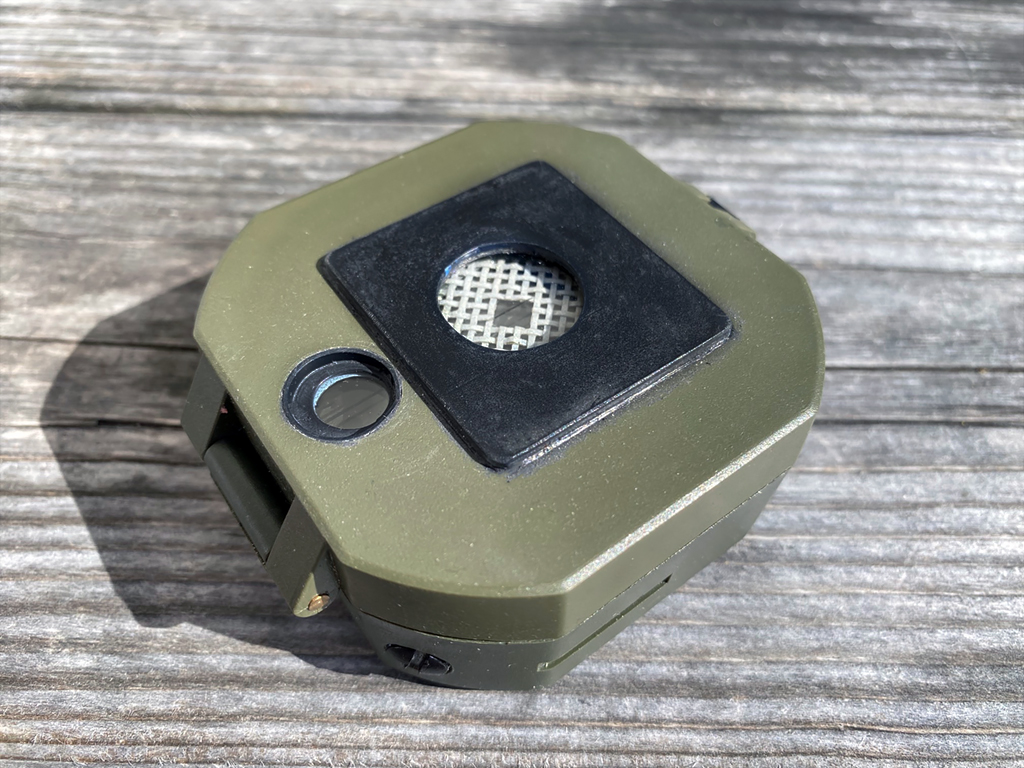
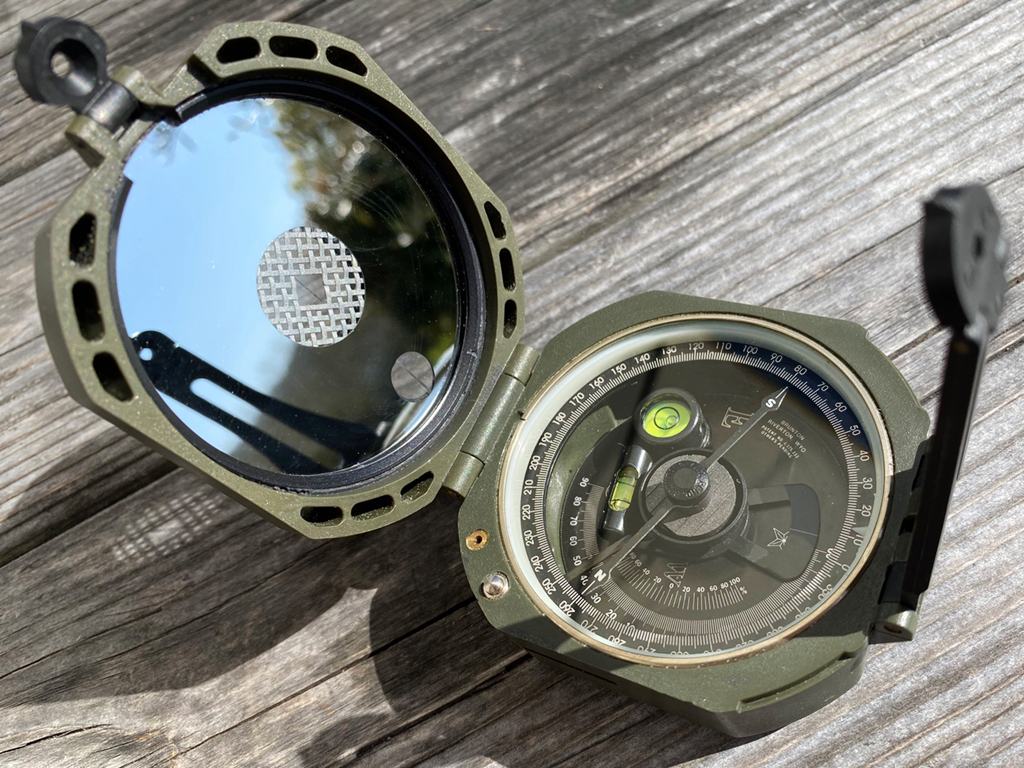


vavavroom
Thread starter
For orienteering on the fly you might be best off using a wrist compass. It's not very precise and doesn't have a declination adjustment so you may have to do a little math but it's super-rugged, can be used while running, and is legible in the dark. You can even go open water swimming in the dark if you are into crazy stuff like that. It does have an aiming feature through the capsule and a vertical readout so you can take a decently accurate bearing.
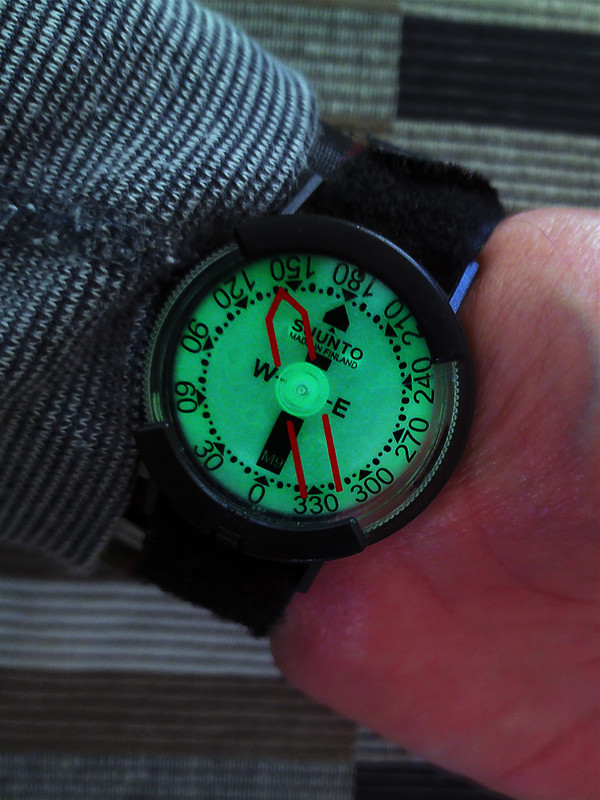
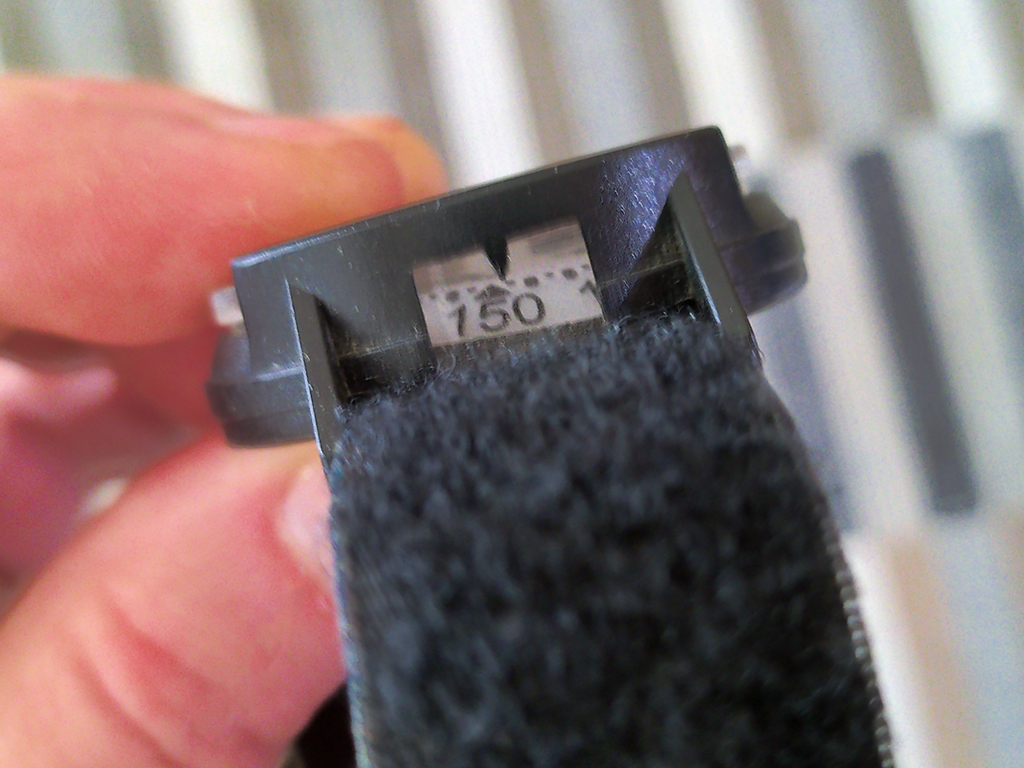


Last edited:
Similar threads
- Replies
- 41
- Views
- 2K
- Replies
- 27
- Views
- 7K


